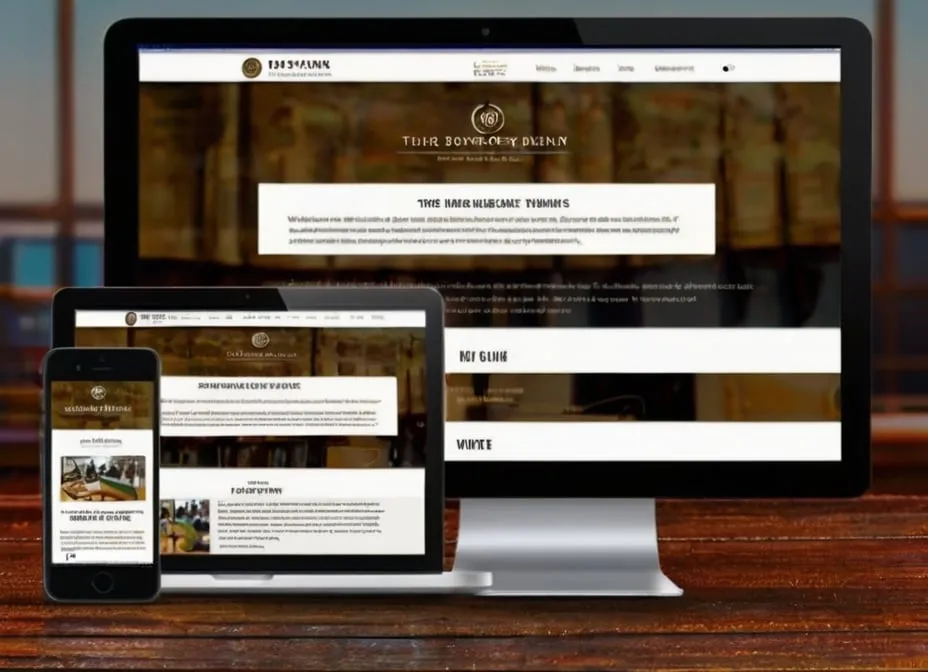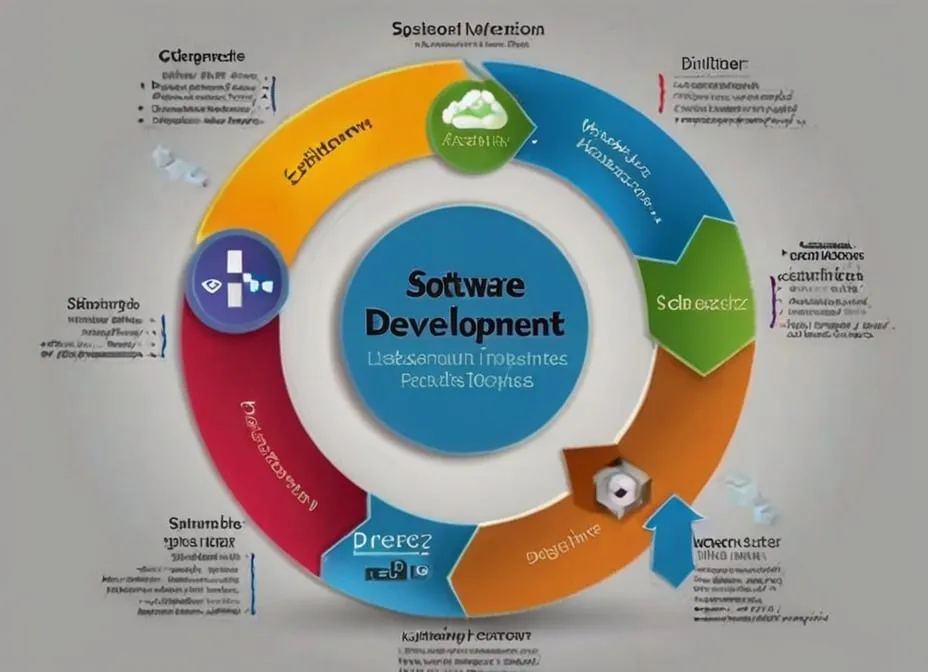Business Implications of Social Media Analytic
Introduction to Social Media Analytics
In today's digital age, social media has become an integral part of our lives, shaping the way we communicate, interact, and consume information. For businesses, the rise of social media platforms presents both opportunities and challenges. As consumers increasingly turn to social media for product research, brand engagement, and customer service, it has become crucial for businesses to understand and leverage the power of social media analytics.
What is Social Media Analytics?
Social media analytics is the process of collecting, analyzing, and interpreting data from social media platforms to gain valuable insights into consumer behavior, brand perception, and industry trends. It involves monitoring and measuring various social media metrics, such as mentions, engagement rates, sentiment analysis, and audience demographics.
The Rise of Social Media and Its Impact on Businesses
Over the past decade, social media has experienced explosive growth, with platforms like Facebook, Twitter, Instagram, and LinkedIn becoming ubiquitous in our daily lives. As a result, businesses have had to adapt and embrace social media as a powerful marketing, communication, and customer service tool. Ignoring the social media landscape is no longer an option for companies aiming to stay competitive and relevant in today's market.
Why Social Media Analytics Matters for Businesses
Social media analytics provides businesses with a wealth of insights that can inform strategic decision-making across various aspects of their operations. By understanding consumer behavior, preferences, and sentiment, businesses can tailor their products, services, and marketing efforts to better meet customer needs. Additionally, social media analytics helps businesses monitor their brand reputation, identify potential issues or crises, and respond promptly to customer feedback, ultimately enhancing customer loyalty and advocacy.
Key Benefits of Social Media Analytics
- Understanding consumer behavior and preferences
- Monitoring brand reputation and customer sentiment
- Identifying industry trends and competitor analysis
- Optimizing marketing campaigns and content strategies
- Improving customer service and engagement
- Measuring the return on investment (ROI) of social media efforts
As businesses navigate the ever-evolving social media landscape, harnessing the power of social media analytics has become a critical component of success. By leveraging these insights, companies can make data-driven decisions, enhance customer experiences, and stay ahead of the competition.
Understanding Consumer Behavior and Trends
One of the primary benefits of social media analytics is the ability to gain valuable insights into consumer behavior and preferences. By monitoring and analyzing social media conversations, businesses can uncover valuable data that can inform their marketing, product development, and customer service strategies.
Monitoring Social Media Conversations
Social media platforms provide a vast repository of real-time conversations, opinions, and feedback from consumers. Through social media monitoring tools, businesses can track mentions of their brand, products, or services, as well as monitor conversations related to their industry or competitors. This allows companies to stay informed about what customers are saying, identify potential issues or opportunities, and respond promptly to customer inquiries or concerns.
Identifying Consumer Sentiment and Preferences
Social media analytics tools can perform sentiment analysis, which involves analyzing the emotional tone and sentiment behind social media posts and conversations. By understanding whether customers are expressing positive, negative, or neutral sentiments towards a brand, product, or service, businesses can adjust their strategies accordingly. Additionally, by analyzing social media conversations, businesses can gain insights into consumer preferences, pain points, and desires, enabling them to tailor their offerings to better meet customer needs.
Tracking Industry Trends and Competitor Analysis
Social media analytics extends beyond monitoring a business's brand and products. By analyzing conversations and trends within the industry, businesses can stay ahead of the curve and anticipate emerging trends or shifts in consumer behavior. Additionally, monitoring competitor activity on social media can provide valuable insights into their marketing strategies, product launches, and customer engagement tactics, allowing businesses to benchmark their performance and identify areas for improvement or differentiation.
Insights into Target Audience and Buyer Personas
Social media platforms provide a wealth of demographic data about users, including age, location, interests, and behaviors. By analyzing this data, businesses can gain a deeper understanding of their target audience and refine their buyer personas. This information can inform targeted marketing campaigns, content creation, and product development strategies, ensuring that businesses are effectively reaching and engaging with their desired customer base.
By leveraging social media analytics to understand consumer behavior and trends, businesses can make informed decisions that resonate with their target audience, stay ahead of the competition, and ultimately drive customer satisfaction and loyalty.
Enhancing Marketing and Branding Strategies
Social media analytics plays a crucial role in shaping effective marketing and branding strategies for businesses. By tapping into the wealth of data and insights available through social media platforms, companies can optimize their marketing efforts, build stronger brand affinity, and drive engagement with their target audience.
Social Media Listening and Campaign Optimization
Social media listening involves monitoring and analyzing conversations related to a brand, product, or campaign across various social media platforms. This process allows businesses to gauge their marketing campaigns' effectiveness, identify improvement areas, and make data-driven adjustments in real-time. By analyzing engagement metrics, sentiment analysis, and campaign-specific hashtags or mentions, businesses can optimize their content, messaging, and targeting strategies to maximize reach and impact.
Influencer Marketing and Collaboration Opportunities
Social media analytics can also help businesses identify and collaborate with influential individuals or brands within their industry or niche. By analyzing social media data, businesses can identify influencers with high engagement rates, relevant audience demographics, and authentic connections with their target market. Partnering with these influencers can help businesses tap into new audiences, boost brand awareness, and leverage the power of social proof and word-of-mouth marketing.
Content Creation and Curation for Engagement
Social media analytics provides valuable insights into the types of content that resonate best with a brand's target audience. By analyzing engagement metrics, such as likes, shares, and comments, businesses can identify the most popular topics, formats, and styles of content. This information can inform content creation and curation strategies, ensuring that businesses produce and share content that is highly relevant, engaging, and likely to drive interaction and sharing on social media platforms.
Social Media Advertising and Targeted Promotions
Social media platforms offer powerful advertising capabilities that allow businesses to reach highly targeted audiences based on various demographic and behavioral data. By leveraging social media analytics, businesses can refine their targeting strategies, identify the most effective ad formats and placements, and optimize their ad campaigns for maximum impact and return on investment (ROI). Additionally, businesses can use social media data to identify prime opportunities for promotions, giveaways, or special offers that align with consumer interests and behaviors.
By integrating social media analytics into their marketing and branding strategies, businesses can stay ahead of the curve, create highly engaging and relevant content, and build stronger connections with their target audience, ultimately driving brand loyalty, customer acquisition, and business growth.
Improving Customer Service and Reputation Management
In today's digital age, customer service, and reputation management have become critical components of business success. Social media analytics plays a pivotal role in helping businesses deliver exceptional customer experiences, address concerns promptly, and protect their brand reputation.
Monitoring Brand Mentions and Customer Feedback
Social media platforms have become a primary channel for customers to express their opinions, share experiences, and provide feedback about brands and products. By monitoring brand mentions and customer feedback across various social media platforms, businesses can stay informed about how their brand is perceived, identify areas for improvement, and address customer concerns or complaints in a timely and effective manner.
Addressing Customer Concerns and Complaints
Social media analytics tools can help businesses quickly identify and prioritize customer complaints or issues that require immediate attention. By responding promptly and addressing concerns on social media, businesses can demonstrate their commitment to customer satisfaction and mitigate the potential for negative sentiment or backlash to spread. Additionally, analyzing common customer pain points or recurring issues can help businesses identify areas for process improvement or product enhancements.
Building Customer Loyalty and Advocacy
Positive customer experiences and prompt resolution of issues can foster customer loyalty and turn satisfied customers into brand advocates. Social media analytics can help businesses identify and engage with their most loyal and vocal customers, leveraging their advocacy to build brand affinity and attract new customers through word-of-mouth recommendations and social proof.
Crisis Management and Damage Control
In the event of a crisis or negative incident involving a brand, social media analytics becomes crucial for monitoring the situation, assessing the potential impact, and implementing effective damage control strategies. By analyzing social media conversations and sentiments, businesses can identify emerging issues or potential crises early on and respond swiftly with transparent communication and appropriate actions to mitigate further damage to their reputation.
By leveraging social media analytics for customer service and reputation management, businesses can proactively address customer concerns, build trust and loyalty, and protect their brand image in the face of potential crises or negative incidents, ultimately enhancing their overall customer experience and long-term success.
Data-Driven Decision Making and ROI Measurement
While social media analytics provides valuable insights into consumer behavior, marketing performance, and customer service, businesses must translate these insights into data-driven decision-making and measure the return on investment (ROI) of their social media efforts.
Analyzing Social Media Metrics and KPIs
Social media analytics involves tracking and analyzing various metrics and key performance indicators (KPIs) that are relevant to a business's goals and objectives. These metrics can include engagement rates (likes, shares, comments), follower growth, click-through rates, conversion rates, and sentiment analysis. By analyzing these metrics over time, businesses can identify trends, evaluate the effectiveness of their social media strategies, and make informed decisions about resource allocation and optimization.
Integrating Social Media Data with Other Business Intelligence
To gain a comprehensive understanding of their performance and make holistic decisions, businesses should integrate social media data with other business intelligence sources, such as website analytics, customer relationship management (CRM) systems, and sales data. By combining these different data streams, businesses can uncover deeper insights, identify correlations between social media activities and business outcomes, and make more informed strategic decisions.
Measuring Return on Investment (ROI) of Social Media Efforts
While measuring the direct financial impact of social media activities can be challenging, businesses can develop frameworks and methodologies to assess the return on investment (ROI) of their social media efforts. This may involve tracking metrics such as lead generation, customer acquisition, and revenue attribution from social media channels. Additionally, businesses can measure the cost savings associated with improved customer service, crisis management, and brand reputation protection enabled by social media analytics.
Continuous Optimization and Strategic Adjustments
Social media analytics is an ongoing process that requires continuous monitoring, analysis, and optimization. As consumer behavior, industry trends, and market dynamics evolve, businesses must be agile and adapt their social media strategies accordingly. By regularly reviewing and analyzing social media data, businesses can identify areas for improvement, test new tactics or approaches, and make strategic adjustments to maximize their social media performance and ROI.
By embracing data-driven decision-making and measuring the ROI of their social media efforts, businesses can ensure that their investments in social media analytics are aligned with their overall business objectives, enabling them to make informed decisions, optimize their strategies, and drive tangible business results.
Conclusion
In the dynamic and highly competitive business landscape of today, social media analytics has become an indispensable tool for organizations seeking to gain a competitive edge. By harnessing the power of social media data, businesses can unlock valuable insights into consumer behavior, preferences, and industry trends, enabling them to make informed decisions, enhance marketing and branding strategies, deliver exceptional customer service, and ultimately drive business growth and profitability.
Through social media analytics, businesses can monitor and analyze conversations, sentiments, and engagement metrics, gaining a deeper understanding of their target audience and tailoring their products, services, and marketing efforts to meet customer needs. Additionally, social media analytics plays a crucial role in enhancing brand reputation, addressing customer concerns promptly, and mitigating potential crises through effective reputation management and crisis communication strategies.
Furthermore, by integrating social media data with other business intelligence sources and measuring the ROI of their social media efforts, businesses can make data-driven decisions, optimize their strategies, and align their social media investments with their overall business objectives.
As the digital landscape continues to evolve, businesses that embrace social media analytics and adapt to the ever-changing consumer behavior and market dynamics will be well-positioned to stay ahead of the competition, foster customer loyalty, and achieve long-term success.
FAQs
- What is the difference between social media analytics and social media monitoring? Social media monitoring refers to the process of tracking and collecting data from social media platforms, such as mentions, conversations, and trends related to a brand, product, or industry. Social media analytics, on the other hand, involves analyzing and interpreting this collected data to derive insights, identify patterns, and inform business decisions.
- How can businesses ensure the accuracy and reliability of social media analytics data? To ensure the accuracy and reliability of social media analytics data, businesses should use reputable and industry-leading social media analytics tools that employ advanced algorithms and machine learning techniques. Additionally, it is important to regularly review and validate the data, cross-reference it with other data sources, and establish clear data governance and quality control processes.
- What are some common challenges businesses face when implementing social media analytics? Some common challenges businesses face when implementing social media analytics include data privacy and compliance concerns, managing the volume and complexity of social media data, integrating data from multiple social media platforms, and ensuring that the insights derived from social media analytics are actionable and aligned with overall business objectives.
- How can businesses measure the ROI of their social media analytics efforts? To measure the ROI of social media analytics efforts, businesses can track metrics such as lead generation, customer acquisition, revenue attribution, and cost savings associated with improved customer service and crisis management. Additionally, businesses can develop frameworks to quantify the value of brand reputation, customer loyalty, and advocacy driven by effective social media analytics strategies.
- How can businesses ensure that their social media analytics strategies are ethical and respect user privacy? To ensure ethical and privacy-compliant social media analytics strategies, businesses should adhere to applicable data protection regulations and industry best practices. This includes obtaining proper user consent, anonymizing and securing user data, and providing transparency about data collection and usage practices. Additionally, businesses should prioritize user privacy and implement robust data governance policies.










